News
-
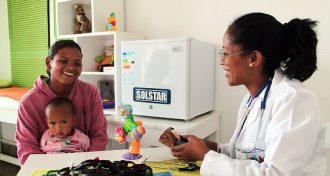 Science & Society
Science & SocietyLonger gaps between births can halve infant deaths in developing nations
Leaving more time between successive pregnancies matters for infant survival, but only in less-developed countries.
By Sujata Gupta -
 Health & Medicine
Health & MedicineManipulating nerve cells makes mice ‘see’ something that’s not there
Using optogenetics to stimulate about 20 nerve cells causes mice to perceive nonexistent vertical or horizontal lines.
-
 Materials Science
Materials SciencePermanent liquid magnets have now been created in the lab
Magnets that generate persistent magnetic fields are usually solid. But new little bar magnets have the mechanical properties of liquids.
-
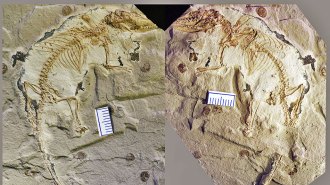 Paleontology
PaleontologyA flexible bone that helps mammals chew dates back to the Jurassic Period
A flexible bone that helps with chewing may have helped give rise to the Age of Mammals, a new fossil shows.
-
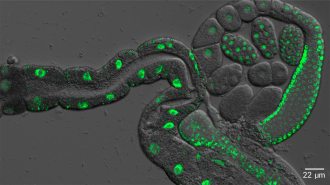 Genetics
GeneticsThis gene may help worms live longer, but not healthier
Antiaging therapies may have trade-offs, research on worms suggests.
-
 Cosmology
CosmologyScientists still can’t agree on the universe’s expansion rate
A mismatch in measurements of how fast the universe is expanding might not be real, a study hints.
-
 Astronomy
AstronomyGaps in gas disks around stars may not always mark newborn planets
New research has prompted a rethink of the theory that gaps in planet-forming disks around young stars mark spaces where planets are being created.
-
 Climate
Climate‘Sunny day’ high tide floods are on the rise along U.S. coasts
Sea level rise led to record-breaking tidal flooding in cities along the U.S. East Coast, a NOAA report found.
-
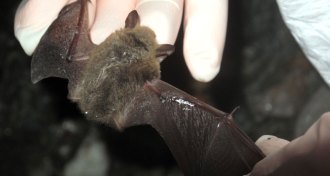 Life
LifeSpraying bats with ‘good’ bacteria may combat deadly white nose syndrome
Nearly half of bats infected with white nose syndrome survived through winter after being spritzed with antifungal bacteria, a small study finds.
-
 Tech
TechThis solar-powered device produces energy and cleans water at the same time
Someday, the two-for-one machine could help curb electricity and freshwater shortages.
-
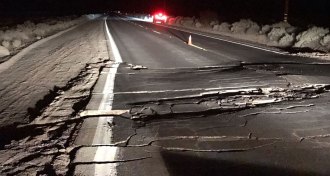 Earth
Earth3 questions seismologists are asking after the California earthquakes
After back-to-back quakes, scientists are scrambling to figure out which faults ruptured and what it means for future California quake activity.
-
 Artificial Intelligence
Artificial IntelligenceArtificial intelligence has now pretty much conquered poker
A new artificial intelligence called Pluribus is a real card shark at six-player no-limit Texas Hold’em.